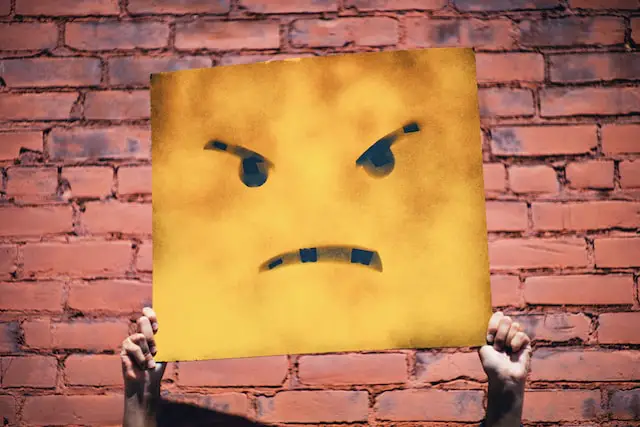Hate and envy both share similar characteristics such as feelings of resentment or anger towards someone, their fundamental differences lie in the motivations behind them. Hate is driven by negative feelings and a desire to harm another person, while envy is inspired by jealousy over someone’s accomplishments or possessions. Therefore, it is important to recognize the difference between these two emotions so that we can understand how to best manage them when they arise.
The definition of hate
(Photo by Andre Hunter on Unsplash )

Hate is defined as an intense or passionate dislike of someone or something. It’s an emotion that is felt very strongly and can often lead to negative actions, such as violence. It is an intense feeling of dislike or aversion. Hate can be directed at an individual, group, or thing. It is often based on fear or ignorance and can lead to violence or other negative behaviours.
The definition of envy
Envy is defined as a feeling of discontented or resentful longing aroused by someone else’s possessions, qualities, or luck. While envy can sometimes lead to negative actions, such as sabotage, it is not as intense an emotion as hate. Envy is characterized by a desire to have what someone else has. It is often fueled by jealousy and can lead to negative feelings such as resentment or bitterness.
Examples of hate and envy
- Hate can manifest as anger, resentment, or hostility towards someone.
- Envy can manifest as jealousy, resentment, or a longing for what someone else has.
- Hate can be directed towards someone for their race, religion, gender, sexual orientation, or any other number of reasons.
- Envy can be directed towards someone for their success, their possessions, their relationships, or anything else that the person feels they lack.
- Hate can lead to violent outbursts or even acts of terrorism.
- Envy can lead to passive-aggressive behavior or sabotage.
These are just a few examples of how hate and envy can manifest themselves. In many cases, the two emotions are intertwined and it can be difficult to tell them apart. However, it’s important to try to understand the difference between the two so that you can better deal with them in your own life.
How to deal with hate and envy
Hate and envy are two different emotions. Envy is when you want what someone else has. Hate is when you wish someone else would lose what they have.
Often, people use the terms “hate” and “envy” interchangeably. However, there is a big difference between the two emotions. Envy is a feeling of discontent or resentment over another person’s advantages or good fortune. Hate, on the other hand, is an intense feeling of dislike or hostility towards someone.
Hate and envy can become toxic emotions if they’re not dealt with in healthy ways. If you find yourself feeling envious or hateful towards others on a regular basis, it might be time to explore some coping mechanisms.
Here are a few tips for how to deal with hate and envy:
- Acknowledge your feelings: It’s important to acknowledge that you’re feeling envious or hateful before you can start to deal with those emotions. Acknowledging your feelings will help you to understand why you’re feeling them in the first place. Once you know what’s causing your negative emotions, you can start to address the issue head-on.
- Talk to someone: Sometimes, talking about your feelings is the best way to deal with them.
Can envy lead to hate?
There are many emotions that can lead to hate, but envy is definitely one of them. When we see someone who has something we want – whether it’s a material possession, a successful career, or even just a happy life – it’s only natural to feel a twinge of envy. But if that envy is allowed to fester, it can quickly turn into hate.
Why does envy so often lead to hate? One reason is that it’s very frustrating to constantly feel like you’re lacking in comparison to others. It’s easy to start feeling angry and resentful when you believe that someone else has what you deserve.
Another reason is that envy is often accompanied by feelings of insecurity and inferiority. When we compare ourselves unfavorably to others, it takes a toll on our self-esteem. And when our self-esteem is low, we’re more likely to lash out in anger at those who we think are responsible for our pain.
So if you find yourself feeling envious of someone, be careful not to let it turn into hate. Address the root causes of your envy, such as low self-esteem or unrealistic expectations, and try to focus on the good things in your own life. With time and effort, you can prevent envy from poisoning your heart.
How does envy destroy a person?
When someone is envied, they are resentful of another person’s advantages. The feeling of envy can be so strong that it eats away at a person’s self-esteem and happiness. Envy can also lead to negative thoughts and actions, such as gossiping and sabotaging the person who is envied. In extreme cases, envy can destroy relationships and even lead to violence.
What is the main cause of envy?
The main cause of envy is jealousy. When someone is jealous of another person, they feel like they are not good enough or that the other person is better than them in some way. This can lead to feelings of inadequacy and low self-esteem.
Is envy worse than jealousy?
(Photo by cottonbro studio)

It is often said that envy is the sincerest form of flattery. However, there is a big difference between admiration and envy. Envy is when you want what someone else has and feel miserable that you don’t have it. Jealousy is when you’re afraid of losing what you have. So, which one is worse?
Many people would say that envy is worse than jealousy because it’s driven by negative emotions like greed, bitterness, and resentment. When you’re jealous, you may not be happy for someone else’s good fortune, but at least you still have your own things to be grateful for. Envy can also lead to destructive behavior like sabotaging the person who has what you want or spreading rumors about them.
On the other hand, some people believe that jealousy is actually worse than envy because it’s more primal and intense. Jealousy can make people do crazy things, like stalk their partner or resort to violence. It can also consume your thoughts and emotions to the point where it interferes with your daily life. So, while envy may be more sneaky and passive-aggressive, jealousy can be all-consuming and destructive.
What is the strongest form of hate?
There is no definitive answer to this question as it is subjective. However, some experts believe that the strongest form of hate is that which is based on fear. This type of hate can be all-consuming and can lead to disastrous consequences. It can cause people to act in ways that they would never normally behave, and can even drive them to commit acts of violence.
Is hate a form of evil?
There are many different forms of evil. Hate is just one of them. Some people may argue that hate is not a form of evil because it’s simply an emotion. However, when that emotion is directed towards another person or group with the intention of causing harm, then it becomes something much more sinister.
Hate can lead to terrible things like bigotry, violence, and war. It’s the root of so much pain and suffering in the world. And it’s something that we should all strive to avoid.
Is hate a weakness?
Hate is not a weakness. It is an emotion that is often misdirected and misunderstood. Hate is a powerful emotion that can be directed at anything or anyone. It is often the result of fear, insecurity, or feelings of inferiority. When someone or something threatens our sense of safety or well-being, we may lash out in hate. This doesn’t make us weak, it makes us human.
Is hate an emotion or feeling?
So, Is hate an emotion or feeling? Hate is definitely an emotion. It is a very strong emotion that can lead to negative consequences if it is not managed properly.
How to stop hating everything?
It’s easy to fall into the trap of hating everything. The world can be a tough place, and it’s easy to feel like things are just stacked against you. But hate is a destructive emotion that will only make things worse. If you find yourself hating everything, here are some tips to help you stop:
- Acknowledge your feelings. It’s okay to feel angry, frustrated, or even hopeless. But don’t dwell on those negative emotions. Instead, try to focus on the positive aspects of your life.
- Find something to be grateful for. No matter how bad things might seem, there is always something to be thankful for. Maybe it’s a friend who always makes you laugh, or a pet that brings you joy. Focusing on the good can help offset the negativity you’re feeling.
- Take action against what you hate. If there’s something specific that you’re angry about, do something about it instead of just stewing in your resentment. Write a letter to your elected officials, start a petition, or volunteer for a cause you care about. Taking action can help you feel empowered and motivated instead of hopeless and helpless.
- Be mindful of your thoughts. Pay attention to the things you say to yourself when you’re feeling down. Are you being too hard on yourself? Would you say those same things to a friend? Be compassionate with yourself and try to reframe your negative thoughts in a more positive
How do you deal with someone you hate?
Most of us have experienced hate at some point in our lives. Whether it’s directed at ourselves or someone else, hate is a destructive emotion that can lead to all sorts of negative consequences. So what’s the best way to deal with someone you hate?
- Try to understand why you feel this way. Is there something specific that’s triggering your emotions? If so, can you avoid or remove yourself from the situation?
- Focus on the positive. Dwelling on negative feelings will only make them stronger. Instead, try to focus on the good things in your life and the people who make you happy.
- Talk to someone you trust about how you’re feeling. Getting things off your chest can help you feel better and provide a different perspective on the situation.
- Take action if necessary. If someone is deliberately trying to hurt you, then taking action may be necessary to protect yourself. This could involve talking to them directly, or seeking support from authorities if they refuse to stop.
How do you act nice to someone you hate?
If you’re trying to act nice to someone you hate, it can be difficult to mask your true feelings. However, there are a few things you can do to fake it until you make it. Try smiling and making eye contact when you talk to the person, even if it feels fake. Find something genuine to compliment them on, even if it’s something small. And try to avoid saying anything negative about them, even if it’s hard. If you can act pleasant around the person for long enough, eventually your real feelings might start to change.
Featured Image – Photo by Zach Vessels on Unsplash








